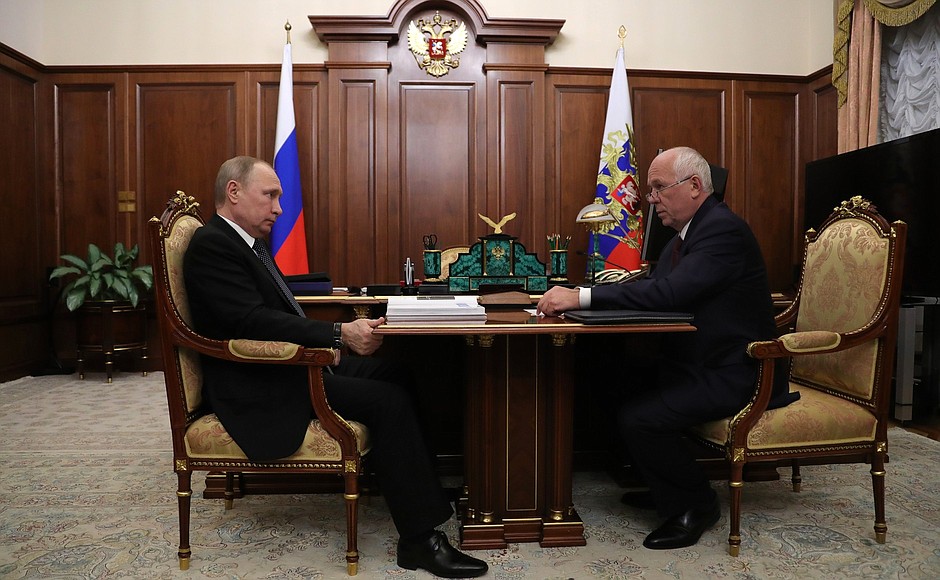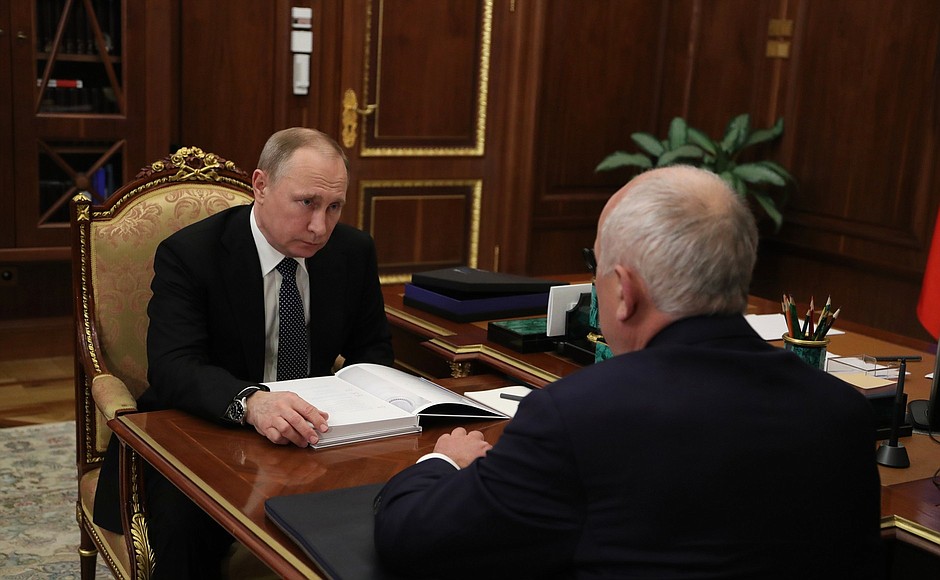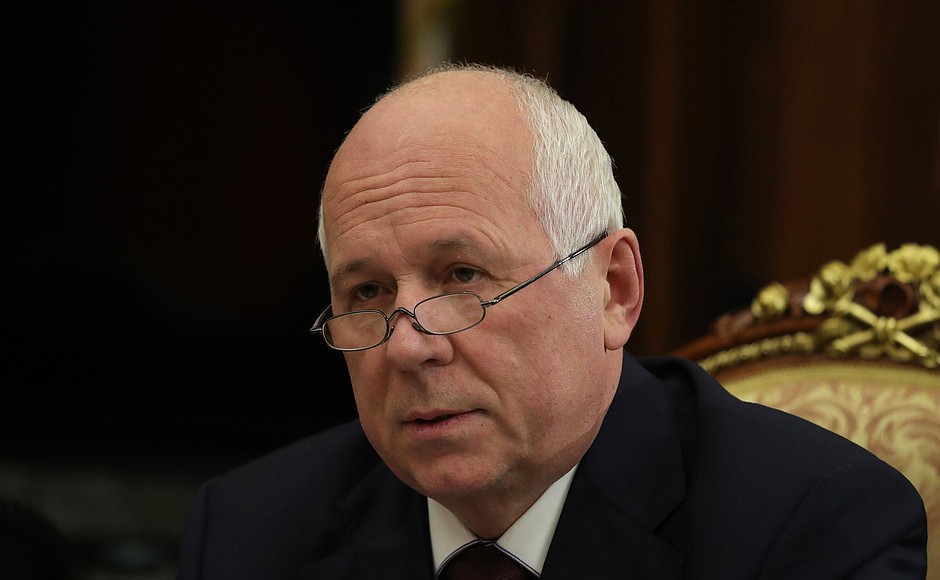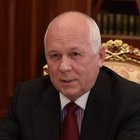President of Russia Vladimir Putin: Mr Chemezov, your annual report is ready. Please.
Rostec State Corporation CEO Sergei Chemezov: Mr President, I am ready to present to you the corporation’s traditional annual report for 2016.
Despite the rather complicated macroeconomic situation, the corporation has recorded pretty good results. We have increased earnings by 11 percent to over 1.2 trillion rubles.
It is encouraging that civilian production has also been growing. Its volume has increased to 374 billion, accounting for 25 percent of the total. This is very good because we understand that the state defence order will not remain at such levels forever. Of course, there will still be something, but not such large orders anymore. So naturally, we have set all holdings the target of raising civilian production to 50 percent by 2025. Then we won’t have to depend on the military component.
Our exports have also grown, although not by much, 3 percent. Nevertheless, this represents 13.1 billion dollars, which is the amount of goods sold via Rosoboronexport.
A total of 142 billion was invested in R&D programmes in 2016, up 10 percent, including 43.9 billion of our own capital. Of course, the state helps us: nearly 100 billion was provided for investment projects. Nevertheless, we are also raising our own funds.
The average monthly pay grew 7 percent compared to 2015 and reached 44,000 rubles. This is not bad compared to Russia’s average wage, which is about 37,000 rubles.
A major business project was completed in 2016: the sale of a 12 percent stake in the Russian Helicopters holding company. We sold it to a consortium of the Russian Direct Investment Fund (RDIF) and foreign funds. We also signed a contract for creating facilities to assemble the Ka-226 helicopters in India.
Vladimir Putin: What is the contract worth?
Sergei Chemezov: Over one billion. We will deliver 40 helicopters and another 160 will be assembled under a licence in India.
Vladimir Putin: Over one billion dollars?
Sergei Chemezov: That’s right.
We have also completed the delivery of the S-300 air defence systems to Iran. We have fulfilled our obligations in full.
In 2016, we opened a new international airport in Zhukovsky. It will be our first airport focused on low cost airlines. At this point, seven companies make flights from Zhukovsky Airport.
We also continued our programme of building perinatal centres in 2016. We completed two such centres last year, in Orenburg and Ufa, and will complete another 13 centres this year. You have attended the opening ceremony of such a centre in Bryansk. I would like to add that over 60 percent of medical equipment supplied to these centres was made in Russia, and the majority of these were manufactured by Rostec companies.
We have completed two major projects in smart lighting in Nizhny Tagil and Ulan-Ude as part of the Bright City project. What does ‘smart’ mean? We used LEDs that were produced domestically in the fixtures, and they switch on and off depending on the time of the day, which helps cut city expenses.
Vladimir Putin: And what are the import volumes in the lighting sector?
Sergei Chemezov: Unfortunately, we still import a lot, since this type of production is just getting started. The main manufacturing facility is in St Petersburg.
Vladimir Putin: Are you referring to the Svetlana company?
Sergei Chemezov: Yes, it is called Svetlana. Production of this line has also been launched at Shvabe, Rostec’s optics division.
Kalashnikov Concern has launched five new production facilities, including the one we visited with you. I believe that this is a good example of an effective public-private partnership. At the outset, private investors held 49 percent of the stock. However, we have already taken a decision to increase their share to 75 percent, keeping 25 percent plus one share, to remain in control of arms manufacturing.
Kalashnikov has evolved into a multi-purpose manufacturer that operates far beyond the small arms segment. After acquiring a shipyard in Rybinsk it started producing motor boats both for civilian and military purposes. They also make drones that are successfully used by the Russian army. This indicates that this company has been successful.
Today one of the shareholders, Mr Bokarev, said that he wanted to invest in a new Rostec holding that makes high-precision weapons. We are now looking into what share we can sell him.
The corporation has also developed an IT analytics platform for procurement monitoring and supervision. This is an interesting piece of software that has been praised by several federal agencies. We agreed to run a pilot project on the procurement of medical equipment and pharmaceuticals with the Healthcare Ministry. If the system proves effective, it can be used in all government procurement transactions.
<…>



